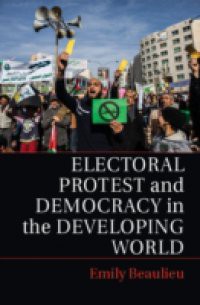This book shows that the third wave of democracy has been accompanied by a worldwide wave of opposition-initiated, election-related protests. Such electoral protests result from a failure on the part of incumbent and opposition elites in the developing world to negotiate acceptable terms of electoral conduct, and their consequences for democracy depend on the context in which they occur. Where election boycotts receive international support, they increase the probability of democratic reform, but where support is primarily domestic, there is a higher probability of authoritarian backsliding. Based on an extensive new data set covering nearly thirty years of electoral protest and election-related reform in the developing world, this book explores the causes of different types of electoral protest and their consequences for democracy. Statistical analysis and case studies provide readers with a complete picture of the dynamics surrounding developing world elections, protest, and democratization.

